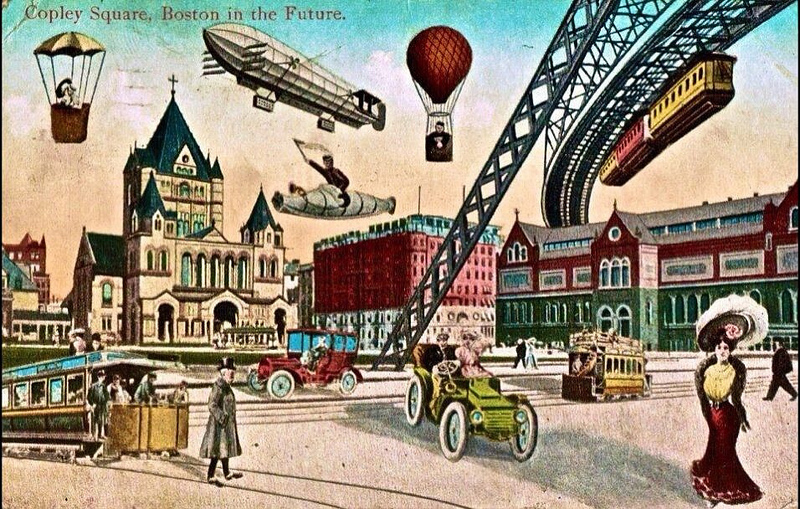It all started with Mr. Penumbra and his bookstore, his 24-hour bookstore that is, and the clerk Clay and his girlfriend Kat talking about the future (page 60). This happens in Mr. Penumbra’s 24-Hour Bookstore, by Robin Sloan, a fabulous short novel about a bookstore that is more than it appears, customers who never buy but check out endless books and, of course, a budding new romance. What could be more enticing than that?

Where will the future take us? (Photo credit: Infrogmation)
Here’s part of the conversation from page 60, as we’re going to need to discuss that.
Kat: “Okay, we’re going to play. To start, imagine the future. The good future. No nuclear bombs. Pretend you’re a science fiction writer.”
Clay: Okay: “World government…no cancer…hover-boards.”
“Go further. What’s the good future after that?”
“Spaceships. Party on Mars.”
“Further.”
“Star Trek. Transporters. You can go anywhere.”
“Further.”
I pause a moment and then realize. “I can’t.”
Kat shakes her head. “It’s really hard. And that’s, what, a thousand years? What comes after that? What could possibly come after that? Imagination runs out. But it makes sense right? We probably just imagine things based on what we already know, and we run out of analogies in the thirty-first century.”
Ok, we got a little sidetracked on the sci-fi angle here. It was honestly the hover-boards that pulled me in as I would love to ride one. But let’s just imagine even 20 years into the future.
If we can imagine taking one leap, and thinking of that as something that already exists, then we can build from there. Suppose in the 1980s, we had imagined (and I suppose some people did) that everyone would be online all the time by the next century. What could we have imagined from there? Could we have realized mobile devices were going to be as prevalent as they are today?
The point is that once you go forward 10 or 15 years and realize that one assumption might come true, you can look for the next one. And then nothing seems unrealistic anymore. But if you try and skip from where we are now to something like 50 years later, it becomes more difficult. What would be easier to imagine first back in the 1950s? Having a dial-up Internet connection, or everyone having mobiles that they would carry with them that would have access to the Internet?